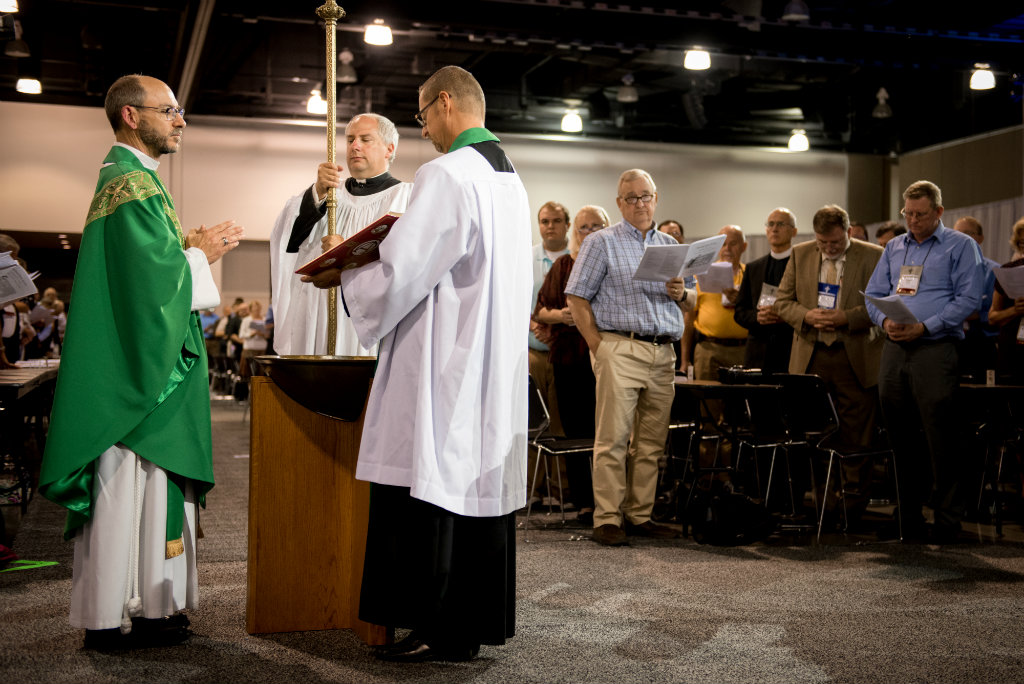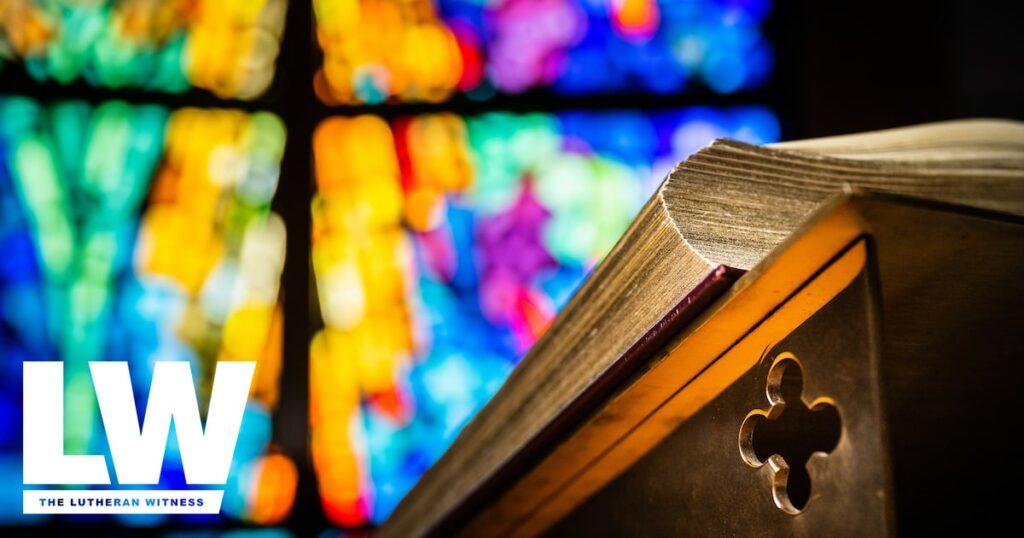
by Friedrich Pfotenhauer
translated by Matthew C. Harrison
This was Pfotenhauer’s first address as district president, delivered in 1892 to the Minnesota and Dakota District. Pfotenhauer later served as Synod President from 1911–35. His words are a beautiful, urgent admonition for synod conventions to be, above all, doctrinal and to be doctrinal in order to be about mission.
It has pleased God the Holy Spirit to explicitly describe the first Christian council, which took place in the year 50 at Jerusalem, in the 15th chapter of Acts, which was read to begin this session. Allow me now, beloved fathers and brethren … to attempt to demonstrate that our synod assembly is essentially like that at Jerusalem. …
The text [Acts 15:1ff] tells us first of all why the congregation at Antioch desired to have a synod session. False teachers threatened to cause confusion, and the unity in the Spirit was in danger. Thus the council would deal with doctrine. We hold synods for the same reason. . . . We come together, rather, to examine a definite doctrine and to deepen our understanding of the saving knowledge. . . .
The congregation at Antioch chose representatives, namely, Paul, Barnabas, and certain members of the congregation. … Our synod meetings are not gathering of pastors, but gatherings of congregations and their representatives. … Thus the lay delegates have the same voice and place as the pastors. . . .
When the synod had gathered at Jerusalem, they immediately began to deal with the matter of doctrine. The doctrine of Christian freedom was a burning question. … From God’s Word they convincingly demonstrated that one must not continue to lay the yoke of Moses upon the necks of the disciples. Salvation comes only through the grace of the Lord Jesus Christ …
But the first synod at Jerusalem dealt not only with doctrine, it also dealt with mission. It says: “And they declared all that God had done with them” [Acts 15:4]. “And all the assembly fell silent, and they listened to Barnabas and Paul as they related what signs and wonders God had done through them among the Gentiles” [Acts 15:12]. Also at our sessions, the mission [of the Church], after the treatment of doctrine, takes the most time. Our dear traveling preachers have given their lives for the name of our Lord Jesus Christ. . . . In so doing, they move us to holy determination to take the Word of God ever further and to work ever more diligently. …
Our Confessions also testify that along with the advancement of understanding of the pure doctrine, the mission should be the chief matter of a synod. Luther writes in the Smalcald Articles:
I should be very happy to see a true council assemble in order that many things and many people might derive benefit from it. . . . we see so many vacant and desolate parishes everywhere that our hearts would break with grief. . . . Those people cannot hear Christ speak to them as the true shepherd speaking to His sheep. [SA Preface 9–11; Tappert, 290].
Let us come together in order to give counsel from the Word of God where there is need of our counsel . . . Let us come together in order to sit around the honeycomb of the divine Word and eat and speak there from. Oh, how sweet it is—to encourage, to carry on the work of the mission!
Excerpted from At Home in the House of My Fathers: Presidential Sermons, Essays, Letters, and Addresses from the Missouri Synod’s Great Era of Unity and Growth (CPH, 2011), pages 695–99.



